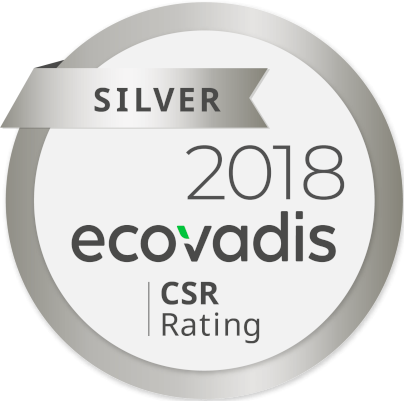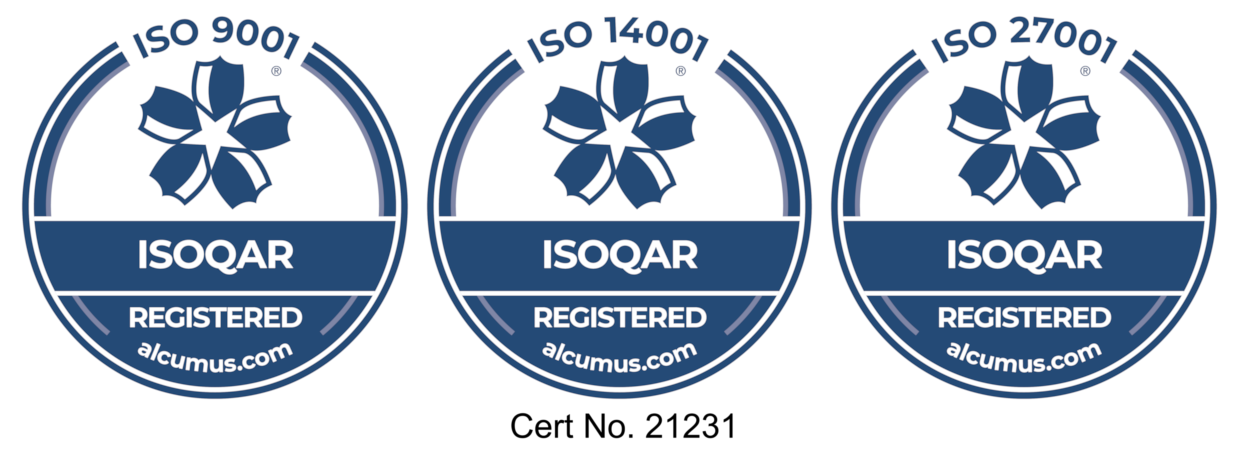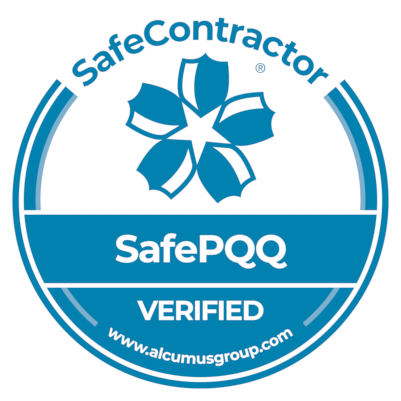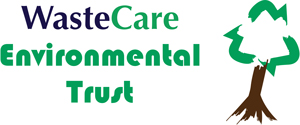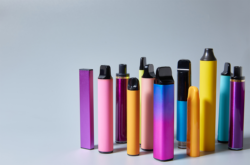
Arcus Compliance recently sat down with our Head of Compliance Clément Gaubert, and our Head of Systems Development Kyle Beachill, to discuss the recent changes to EEE regulations that are due to have an impact on vape producers and importers. Arcus’ Managing Director Robert Sidebottom asks what the PBS will mean for vape producers, why vape recycling has been a problematic process up to this point, and what course of action we believe producers should take to navigate the changes.
Rob: Kyle, can you give me a quick run-down of exactly what has changed and why?
Kyle: So right now vapes are classed as category 7 under the EEE producer compliance responsibility, which covers toys and other items which are quite cheap to collect and recycle. What that’s led to is a problem whereby a lot of local authorities and mixed recycling facilities have ended up with a lot of vapes that producer compliance schemes can’t afford to pick up under the current system. So there exists a ‘backstop’ called the Producer Compliance Scheme Balancing System (PBS), that allows local authorities to make a request to have waste electricals collected, in the situation when their usual contracted collection supplier – usually a compliance scheme – say that they’re not prepared to collect it.
Rob: So are there a number of waste collection companies refusing to collect vape products?
Kyle: It’s not so much that they’re refusing to collect them, but rather that they’re seeing very, very high costs associated with recycling them. So typically vapes are anywhere around £10,000 to £11,000 per tonne to recycle because of the manual processes involved in taking them apart.
In addition, there’s quite a high amount of contraband in the vapes, so we’re not quite sure what they’re made of, and we’ve the POPs issues around the plastics that are in them. We’ve also got lithium batteries that need recycling and we’ve got incineration – so this whole process means they’re extremely expensive to collect and recycle properly, and the current regulations and the category 7 they’re in now doesn’t cover those costs.
So we’re not necessarily seeing schemes refuse to collect them, but what we are seeing are waste companies saying we’re quite happy to collect them, but at the actual cost of recycling.
Rob: So they’ve been keeping hold of all these vapes as they have predicted this was coming?
Kyle: Yes, certainly because of the pressure that’s being placed on DEFRA by local authorities and by the public, because of the environmental concern, particularly around single-use vapes, this has been in the pipeline for 6 months. So we are expecting a backlog of single-use vapes at these sites.
Rob: So what should the vape industry be doing now with regards to this change?
Kyle: I think the important thing is to look and work as an industry to ask ‘How can we control this situation, and how can we bring this cost down?’; because what we’ll see is that as things go through the PBS is there’s absolutely no control over the cost. They will see a quarterly invoice being issued back to the compliance schemes for these costs of collection, which will be allocated back to those vape producers who have joined a compliance scheme.
What we’re then going to see is that those producers will end up paying for the recycling of all the vapes coming out of these sorts of facilities – whether that’s contraband, grey-market imports, or legitimate single-use and reusable vapes.
I think the important thing now is working out how we reduce the overall cost of compliance. And I think its mainly an education piece. So what we’re looking for is the vape industry to work as a whole to educate the public about what should they do with single-use vapes and how do they go about recycling them. If we can control that narrative, we can get people to do the right thing, and we can then work with existing waste collectors who are going to places like retailers anyway – resulting in the actual cost of collection for those vapes will likely be much lower.
Rob: So do you think that responsibility for educating the consumer lies directly with the vape industry, or should it also lie with the local authorities as well?
Kyle: I think there’s a mix. If we look at people like Material Focus, they work hard under the Recycle Your Electricals campaign to try and educate people about the right thing to do with vapes, and they work with the local authorities to get the right messaging in place. But I think fundamentally there is a responsibility on the producers to say ‘This is what you do and this is how you responsibly recycle vapes and this is what you should do with them’. And I think part of the problem is we’re seeing such a disparate message from different producers, and so many different types of recycling initiatives.
It’s quite easy for consumers to simply get confused or not think about it when they’re buying a single-use product. They’re taking it out of the packet, throwing the packet away, and unless there’s something that’s really easy that says this is what you need to do with it, and in as simple message as possible, I think it’s inevitable that people will tend to do the wrong thing.
Clément: I think as a producer you want to control your costs and you want to do the right thing. So with vapes, you’ve got an opportunity to be a leading force in the change because you could either put out containers and as Kyle mentioned control your costs and transportation and do the education piece, or you could wait and you’ll have this PBS invoice which is harder to explain and harder to understand. So we are a big advocate of transparency and compliance costs, and it’s already a tough sell for producers – as we often refer to this as a ‘tax’.
So what we’re saying with vapes, especially because of the cost involved, is that we need support to increase the number of collection points across the UK to be more productive – as with the PBS we’re going to have at least 12 months’ worth of backlog. So the more the producers do the right thing, and join a scheme, this will spread the cost across more vape producers.
Rob: So there’s a bit of a challenge here isn’t there? So what we’re trying to do, and I’m talking as an industry, we’re going to try and encourage as many people as possible to sign up for these schemes because that spreads the cost. And that is the right thing to do – I get that entirely. However if people don’t sign up for these schemes, is there much of a penalty?
Clément: Well it’s a tricky one because sadly there currently isn’t a framework for heavy penalties. Unlike packaging regulations where you can go back in time and backdate the obligation producers have accumulated several years, in the WEEE system the responsibility of the producer relies on a regulator. The regulator in this case is the EA, and from their own admission they struggle to go after the ‘free riders’.
There are also companies importing vapes from around the world, so there are a lot of layers in these importing companies. So it’s a tricky one to get the ‘bad guys’ as it were, and then the penalties are not strong enough to distract people not to join a scheme. It’s worth noting that they will be consulting on a new regulation soon, and we are expecting a new mechanism for stronger penalties for people avoiding paying for compliance schemes.
Kyle: I think the other thing to be conscious of is that vapes are such a hot topic because of the environmental concerns. As a result, we are seeing retailers pushing back and making sure that their suppliers are registered as part of a scheme. So I think as well as the actual enforcement side, there’s definitely a shift in retailers wanting to make sure their suppliers are picking up the costs as they should and are legally compliant to be able to stock the product.
Rob: You mentioned in your previous article that there’s a likely increase of up to 5000% in terms of the costs that are currently being incurred because of the category change. So we did a little calculation prior to this and we calculated that it could be anywhere between 3 to 5 pence per product, is that correct?
Kyle: Yes. If we look at what the cost of category 7 evidence is now which is around £200 – £220 a tonne, and we compare that to the actual cost of collecting and recycling vapes that might be on their own that somebody’s going to have to send out a vehicle to pick up. That could be £11,000 a tonne. So yes, between three and four pence if we assume a vape is around 40 grams.
Rob: That’s a considerable additional cost that producers now need to start taking into account. So what can people who have not signed up for a scheme do now? I’m guessing they can sign up to a scheme at Wastecare? And how do they go about that?
Clément: Yes, they can reach out to us and then it’s a simple case of registering company details, and we would ask for data, e.g. how many tonnes they place on the market either as an importer or manufacturer. So, anything they place on the market in 2023 or 2022 would need to be reported because compliance always looks at the year prior. When they join the compliance scheme, they are assigned a unique compliance number which is given by the Environment Agency, and that number will demonstrate compliance. They can then share this with suppliers, customers, and industry bodies as proof that they are a part of a scheme. They will pick up membership fees, registration fees, and that market share on the cost.
Rob: Now my last question is about the technology for recycling. Obviously, we’ve got quite a difficult item to recycle at this moment in time. It’s turning out to be quite expensive – so will this cost come down as the industry gets better at a) producing devices which are more recyclable, and b) you guys get better recycling these types of products? Is that likely to happen?
Kyle: I think there’s a couple of things there. I think the speed at which vapes have come onto the market and the rapid uptake of the product has caused problems for the recycling industry. The sheer volume of them has far outpaced the investment in recycling them.
I think we’ve also got a problem where we’ve got a rumoured ban on single-use vapes within the next 18 months or so, which is likely to cause problems because it deters investment.
Having said that, I think there’s a place for more mechanical recycling away from the hand disassembly that’s happening now – and we’ve got some trials in place. We’re working with the EA on a more mechanical-based solution that we are hoping will significantly bring down the costs.
About Arcus Compliance
Arcus Compliance Ltd specialises in helping vape brands to build their compliance strategies, to navigate the constantly evolving regulations that face the vape, cannabis/hemp, cosmetics, medical device and adult health industries.


